Comprehensive Preventive Care for Women: Tailoring Screenings and Wellness Across the Lifespan

Setting the Stage for Tomorrow's Prenatal Genetic Counseling
Prenatal care is undergoing a transformative shift, fueled by significant advances in genetic testing technologies and evolving models of genetic counseling. As the field grows to encompass a broader spectrum of genetic screening and diagnostic tools, genetic counselors are becoming vital navigators for expectant parents in an increasingly complex healthcare environment. This article explores the emerging trends and technologies shaping the future of genetic counseling within prenatal care—highlighting innovations in non-invasive testing, digital health integration, AI augmentation, and the expanding roles of genetic counselors dedicated to personalized, equitable prenatal care.
Advancements in Prenatal Genetic Testing: Expanding Capabilities and Their Impact
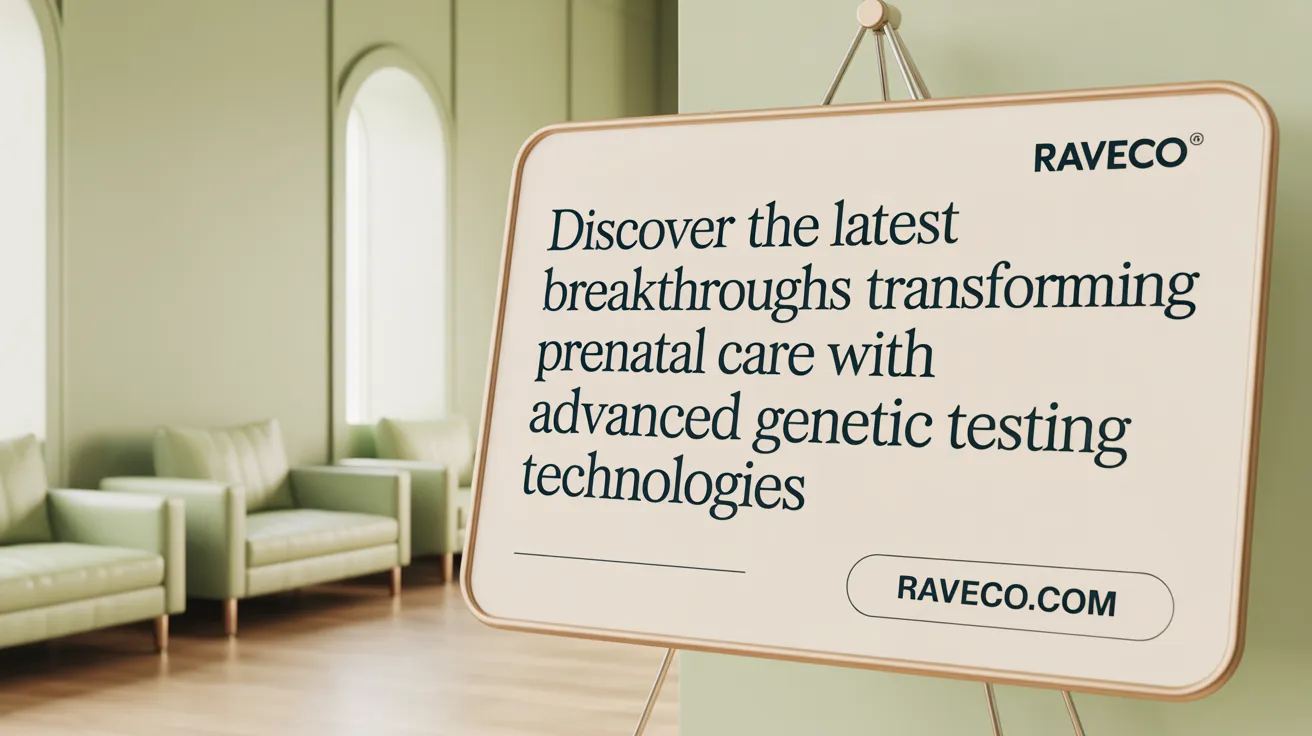
What are the recent advances in prenatal genetic testing and how do they affect prenatal care?
Prenatal genetic testing has seen remarkable advancements over recent years, fundamentally transforming prenatal care. Non-invasive prenatal testing (NIPT), utilizing cell-free fetal DNA (cfDNA) circulating in the maternal blood, has become widely adopted due to its high sensitivity and specificity. It reliably screens for common chromosomal abnormalities such as trisomy 21 (Down syndrome), trisomy 18, and trisomy 13 with detection rates often exceeding 95%, significantly reducing the reliance on invasive testing procedures.
Beyond aneuploidy detection, cfDNA screening panels have expanded to include microdeletions and subchromosomal copy number variants, as well as panels targeting dominant single-gene (monogenic) disorders. These enhanced capabilities enable earlier and less risky detection of a broader range of genetic conditions during pregnancy.
Complementing screening, diagnostic methods have advanced with chromosomal microarray analysis (CMA) providing higher resolution than traditional karyotyping for prenatal samples to identify chromosomal abnormalities. Next-generation sequencing (NGS) techniques, including whole-exome sequencing (WES) of fetal DNA, are increasingly utilized when ultrasound anomalies are observed, offering a diagnostic yield of approximately 25-30%.
Despite these impressive developments, limitations and challenges persist. False positives may occur due to biological complexities like placental mosaicism or maternal mosaicism. Comprehensive validation of new screening methods, especially for rare genetic conditions, remains a hurdle owing to high costs and technical difficulties in large-scale prospective studies.
Looking ahead, research is progressing toward non-invasive whole fetal genome sequencing through maternal blood samples and improved isolation of intact fetal cells. These advances promise to provide comprehensive fetal genetic information without invasive procedures. Moreover, the integration of prenatal gene therapies and gene editing techniques holds the potential to shift prenatal diagnostics from detection to early intervention and treatment planning, heralding a new era in prenatal healthcare.
Evolving Roles of Genetic Counselors in Prenatal Care
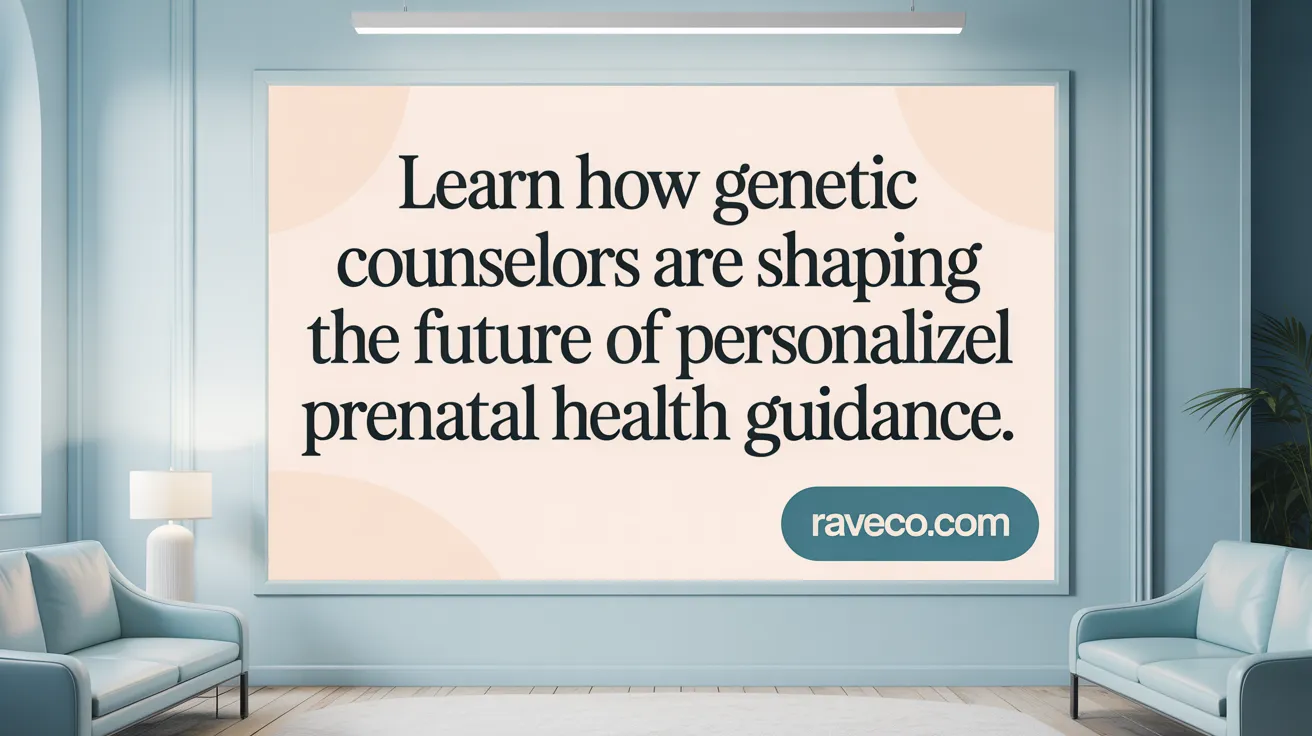
How are genetic counselors’ roles evolving in response to expanding prenatal genetic testing?
As prenatal genetic testing expands, genetic counselors have evolved from gatekeepers controlling test access to skilled navigators who interpret complex and rapidly advancing genetic data. They translate testing results into clear, actionable recommendations, guiding patients through medical and reproductive decisions. This shift is vital as more testing moves beyond traditional clinical genetics into general healthcare settings (Advances in prenatal genetic testing, Genetic counseling professionals, Future of genetic counseling).
Integration into primary care
Embedding genetic counselors within primary care improves accessibility, particularly for underserved and marginalized groups. This integration helps reduce disparities by providing earlier and easier access to counseling services (Integrating genetic counseling in primary care, Addressing health disparities in genetic testing, Maternity Care Deserts in the US).
Expanding roles beyond clinical settings
Genetic counselors are broadening their involvement beyond traditional clinics, engaging in research, education, policy development, and industry roles. This expansion supports the growing demand for genomic medicine and fosters innovation (Genetic counselors in research, Genetic counseling profession growth, Future of Genetic Counseling).
Education, advocacy, and addressing disparities
Counselors educate healthcare providers and policymakers about genomic advances. They advocate for equitable access to genetic testing and counseling services and actively work to reduce health disparities, promoting inclusion in expanding genetic healthcare (Advocacy for diverse patient populations, Building a community-oriented future for genetic counseling, Genetic Counseling Access Disparities).
Collaboration with multidisciplinary teams
To optimize patient care, genetic counselors collaborate with mental health specialists, pharmacists, oncologists, and other healthcare professionals. This team-based approach ensures comprehensive support addressing medical, psychological, and social aspects of prenatal genetic information (Prenatal genetic counseling processes, Psychological support in prenatal genetics, Genetic counseling and healthcare management.
Digital Transformation: Telehealth, AI, and Digital Tools Enhancing Genetic Counseling
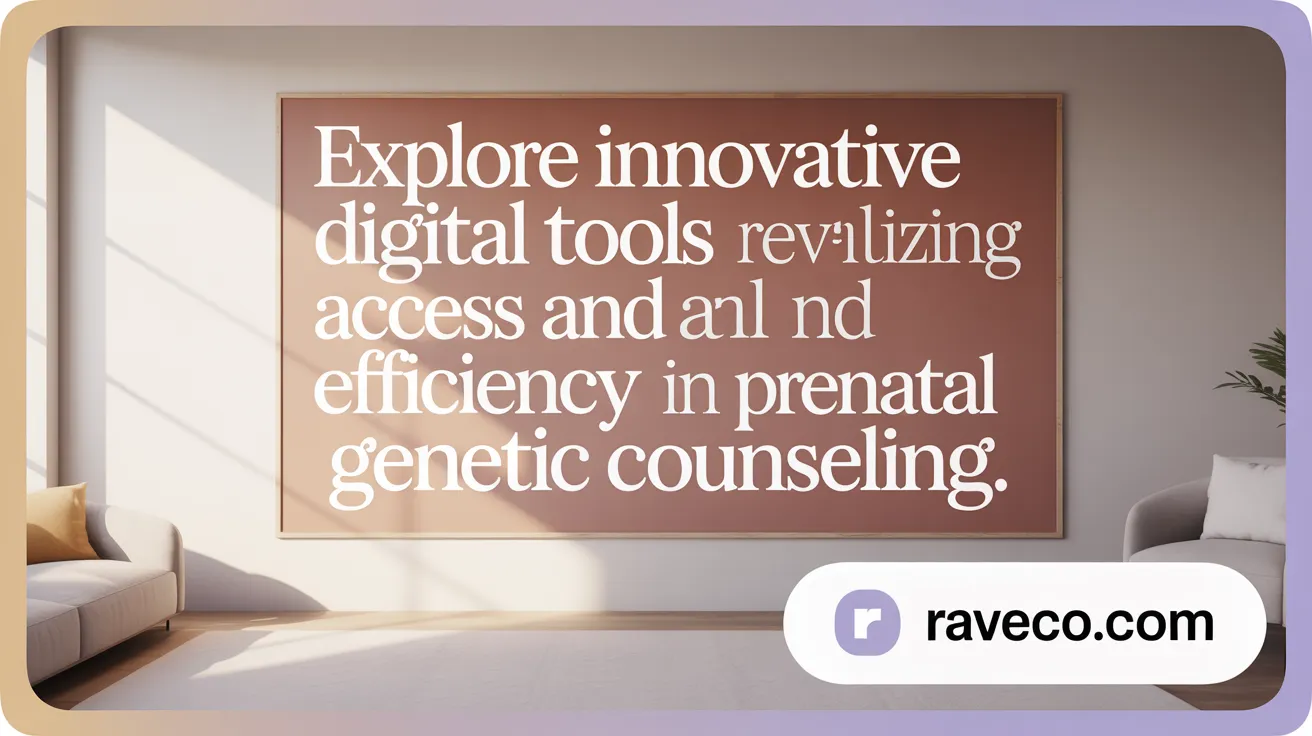
What digital technologies are transforming genetic counseling in prenatal care?
Digital transformation in genetic counseling is marked by multiple innovative technologies reshaping how care is delivered. Telemedicine platforms enable remote genetic counseling, facilitating video consultations that expand access beyond geographical barriers. This approach increases convenience and supports integration of counseling services into primary care settings, improving reach especially in underserved areas.
How are digital genetic assistants and automated counseling tools impacting care?
Digital genetic assistants (DGAs) automate parts of the counseling process such as patient intake and providing educational content. Studies show DGAs can reduce face-to-face counseling appointments by over 60% in reproductive genetic carrier screening, improving workflow efficiency. These tools use personalized multimedia videos to enhance patient understanding, enabling genetic counselors to focus on complex cases.
What roles do AI and ethical considerations play in modern counseling?
Artificial intelligence augments genetic counseling by automating routine tasks like history collection and test interpretation. AI chatbots provide on-demand responses to patient queries, supporting continuous, personalized care. Ethical challenges include safeguarding patient autonomy, ensuring data privacy, and preventing misinformation from biased datasets. Professional societies emphasize rigorous evaluation, stakeholder engagement, and creating standards for ethical AI integration.
What technologies such as video conferencing, chatbots, and virtual reality are emerging?
Video conferencing remains foundational for remote counseling. Complementary tools like AI-powered chatbots enhance accessibility and responsiveness. Emerging virtual reality platforms promise immersive educational experiences, potentially improving patient comprehension and comfort. Collectively, these digital modalities cater to diverse communication preferences and literacy levels.
Could these technologies improve efficiency and access?
Yes, the integration of telehealth, DGAs, AI, and digital platforms streamlines counseling workflows and lowers barriers to access. They enable scalable, patient-centered service delivery while conserving specialized counselor time. This digital shift is crucial amid rising demand for genetic services, aiming to reduce disparities and foster equitable care.
| Technology | Functionality | Impact |
|---|---|---|
| Telemedicine | Remote video counseling | Expanded access, especially rural/underserved |
| Digital Genetic Assistant | Automated intake and education | Reduces face-to-face visits, increases efficiency |
| AI & Chatbots | Personalized communication, automation | Improves scalability, supports clinical decisions |
| Virtual Reality | Immersive education and counseling | Enhances patient engagement and understanding |
Digital tools in prenatal genetic counseling are reshaping the profession by making services more accessible, efficient, and patient-responsive, while maintaining ethical standards and professional oversight.
Personalized and Tailored Prenatal Care Models Integrating Genetic Counseling
How is prenatal care becoming more personalized and tailored in relation to genetic counseling?
Prenatal care is evolving from a one-size-fits-all approach to a model that emphasizes personalized, patient-centered care integrating genetic counseling. Early in pregnancy—preferably before 10 weeks gestation—a comprehensive needs assessment evaluates genetic risks alongside medical, structural, and social determinants such as housing stability, transportation, and social support. This holistic evaluation informs the development of individualized care plans tailored to each pregnant person's unique risk profile and preferences (Tailored Prenatal Care).
Genetic screening and counseling are now offered universally to all pregnant individuals regardless of their traditional risk factors. This inclusive approach helps empower expectant parents to make informed decisions about prenatal testing and subsequent care (Prenatal Genetic Testing Overview). The expanding availability of non-invasive prenatal testing (NIPT) and advanced genetic counseling allows early detection and management of genetic conditions, integrated into a flexible prenatal care schedule.
The use of telehealth and home monitoring technologies reduces the necessity for frequent in-person visits, making care more accessible and convenient. Parameters like blood pressure, fetal heart tones, weight, and other vital signs can be monitored remotely, supported by digital tools and apps for education and communication. Furthermore, group prenatal care models complement individualized plans by providing community support, peer engagement, and efficient resource utilization.
Addressing health disparities is fundamental in this tailored approach. Special attention is given to marginalized populations, including those in rural or underserved areas, to overcome barriers such as limited access to genetic counseling and prenatal services (Genetic Counseling Access Disparities. By focusing on social determinants of health and incorporating cultural sensitivity, the model aims to reduce inequities and improve maternal and neonatal outcomes for all communities.
In summary, personalized prenatal care integrates comprehensive genetic counseling with flexible scheduling, telemedicine, home-based monitoring, and group sessions to adapt care delivery to individual needs. This right-fit care model enhances patient experience, promotes equity, and supports better health outcomes through early identification and management of risks (Tailored Prenatal Care, Advances in Prenatal Genetic Testing.
Challenges and Opportunities in Access and Workforce Expansion
What are the main challenges and developments regarding access to prenatal genetic counseling?
Access to prenatal genetic counseling is hindered by significant disparities, particularly in rural and underserved areas known as maternity care deserts, where there is a scarcity of obstetric clinicians and birthing facilities. These geographic gaps contribute to inequities in care access and maternal outcomes.
Financial barriers also arise because genetic counseling services are not uniformly reimbursed; notably, Medicare does not currently provide direct reimbursement for genetic counseling, restricting patient access and limiting the creation of new counseling positions (2024 President's Call to Action.
The workforce shortage is another major challenge. Although the number of genetic counseling training programs has expanded globally, with over 130 programs and more than 10,000 genetic counselors worldwide (ABGC certified genetic counselors growth; Genetic counseling profession growth), many positions remain unfilled, and some are replaced by less-trained healthcare providers, which may compromise quality and accessibility.
Legislative efforts, such as the Access to Genetic Counselor Services Act, aim to improve reimbursement policies and expand access to genetic counseling, especially targeting rural and underserved populations to reduce disparities.
Innovations in service delivery include integrating genetic counselors within primary care and specialty settings (Future of genetic counseling, as well as expanding telehealth modalities (Telemedicine in genetic counseling. These approaches improve access by embedding counselors closer to patients and enabling remote service provision.
Overall, coordinated strategies involving education, policy advocacy, workforce expansion, and technology adoption are critical to overcoming access barriers and meeting the growing demand for prenatal genetic counseling (Genetic Counseling Growth and Job Outlook; Technology and AI in genetic counseling).
The Integration of Genomic Data and Advanced Sequencing in Prenatal Counseling
How are genomic sequencing technologies influencing prenatal genetic counseling?
Genomic sequencing technologies have profoundly transformed prenatal genetic counseling by broadening the scope and depth of fetal genetic analysis. Whole-exome sequencing (WES) and emerging whole-genome sequencing (WGS) methods provide detailed insights into the genetic causes of fetal anomalies that may not be detectable through traditional testing. These advanced techniques enhance diagnostic accuracy and empower counselors to offer more comprehensive risk assessments and guidance.
Innovations such as non-invasive fetal sequencing (NIFS) represent a major leap forward, allowing extensive fetal genetic information to be derived from maternal blood samples. This approach significantly reduces the need for invasive procedures like amniocentesis, thereby lowering procedural risks while maintaining high sensitivity and specificity in variant detection.
Handling incidental findings and variants of uncertain significance (VUS) remains an ongoing challenge in prenatal counseling. These ambiguous results require genetic counselors to employ nuanced communication strategies to balance patient autonomy and psychological impact, providing clear explanations and tailored support. The complexity of interpreting genomic data underscores the importance of prenatal genetic counseling processes and the role of counselors in interpreting prenatal genetic test results.
The integration of genomic data exerts a significant influence on pregnancy management decisions. Positive genomic findings can guide interventions such as specialized prenatal monitoring, early neonatal care preparation, and cascade testing of family members. Conversely, reassuring negative results from genomic sequencing afford emotional relief and help avoid unnecessary procedures. Studies highlight participant reflections on prenatal genome sequencing supporting informed decision-making and clinical utility.
Research continues to validate and optimize these sequencing methodologies, focusing on clinical utility, test accuracy, and the development of standardized interpretation guidelines. This ongoing work supports the responsible deployment of genomic sequencing technologies in prenatal care and counseling to enhance outcomes and informed decision-making. For comprehensive insight, see reviews on Emerging Prenatal Genetic Technologies and Advances in Prenatal Genetic Testing.
Ethical Considerations and Equity in the Era of Advanced Prenatal Genetics
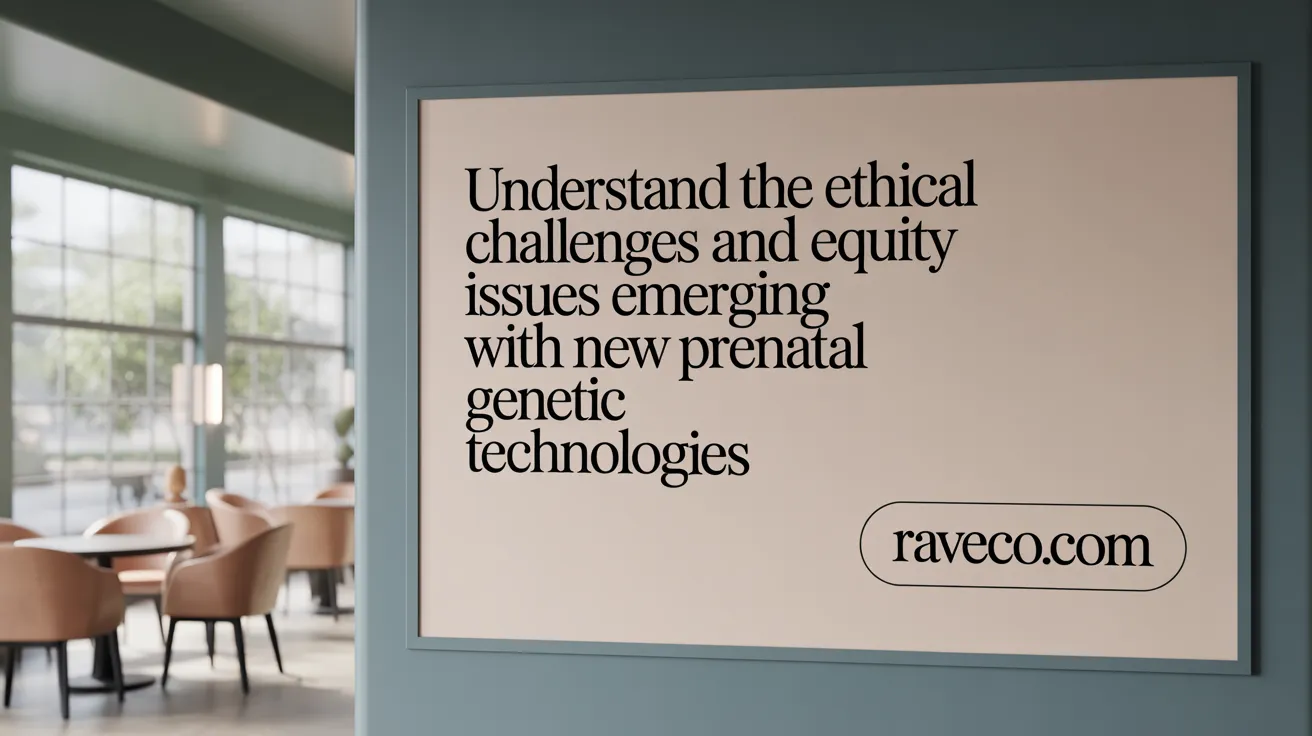
What ethical challenges arise with emerging prenatal genetic technologies, and how are they addressed?
Emerging prenatal genetic technologies, such as advanced cell-free DNA testing and genome sequencing, introduce complex ethical considerations. One primary challenge is ensuring informed consent amid highly detailed and technical information, which can overwhelm patients and impact their understanding and autonomy. This complexity raises risks of reproductive coercion and difficult decisions around gene selection (Prenatal Genetic Testing Overview, Emerging Prenatal Genetic Technologies, Ethical considerations in genetic data).
Another ethical concern involves health disparities. Access to advanced prenatal testing and counseling services may be limited in rural or underserved communities due to costs, lack of genetic counselors, or cultural barriers (Genetic Counseling Access Disparities, Maternity Care Deserts in the US, Culturally sensitive maternity care). To address these gaps, the genetic counseling profession increasingly focuses on culturally competent counseling and proactive community outreach to marginalized populations, emphasizing social justice and equitable healthcare delivery (Building a Community-Oriented Future for Genetic Counseling, Advocacy and Community Outreach in Genetic Counseling).
Digital tools and AI applied in genetic counseling raise new ethical questions around privacy, bias, and transparency. Best practices recommend involving stakeholders early, defining clear goals, and safeguarding patient data to prevent misuse or misinformation (Digital Technologies in Genetic Counseling, Navigating AI Integration in Genetic Counseling, Ethical Issues in AI Genetic Counseling). Professional bodies actively incorporate ethics into counselor training, policies, and guidelines to uphold patient rights while balancing innovation (Future of Genetic Counseling, Genetic Counseling Programs Growth).
Overall, the integration of emerging prenatal genetic testing technologies demands continuous attention to ethical frameworks that respect patient autonomy, promote fairness, and engage communities in developing inclusive, just genetic services (Advances in Prenatal Genetic Testing, Prenatal Genetic Testing Market Size).
Looking Ahead: Future Trends Shaping Prenatal Genetic Counseling
What are the future trends and directions for genetic counseling in prenatal care?
The field of genetic counseling is experiencing rapid growth, with predictions of the workforce doubling by 2030. This expansion is driven by an increasing number of counselors practicing not only in prenatal care but also in diverse specialties such as oncology, pharmacogenomics, cardiovascular health, and public health policy. This broadening scope allows for comprehensive risk assessment and personalized guidance across numerous medical areas (Genetic counselors: Role, settings, and outlook, Genetic counseling profession growth, Expanding precision medicine through genetic counseling).
A notable trend is the mainstreaming of genetic counseling services. Counselors are increasingly integrated within primary care and various specialty clinics, such as pediatric immunology and oncology, improving accessibility and enabling earlier intervention. Embedding counselors in these settings helps reduce disparities by providing direct support to diverse patient populations (Genetic counselling future and mainstreaming, Genetic counselors in genomic healthcare).
Technological advancements, particularly in artificial intelligence (AI) and virtual reality (VR), are poised to transform genetic counseling. AI can automate routine tasks like patient history collection and result interpretation, freeing counselors to focus on complex cases and enhancing patient interaction via personalized education tools. VR applications promise immersive and engaging ways to explain genetic concepts, improving comprehension and emotional support (Navigating AI integration in genetic counseling, Generative AI in genetic counseling, Future of genetic counseling with technology.
The integration of genetic counseling with digital prenatal care platforms enhances continuous, personalized monitoring and decision-making. Telehealth and mobile technologies facilitate remote consultations and real-time data sharing, supporting more responsive and patient-centered care. Precision medicine efforts benefit from this synergy, enabling tailored risk assessments based on individual genetic profiles (Digital technologies in genetic counseling, Digital health in antenatal care, Telehealth and digital prenatal care).
Policy and research directions are also evolving. There are active initiatives to improve reimbursement policies for genetic counseling services, addressing current barriers in Medicare and Medicaid coverage. Research emphasizes evaluating new counseling delivery models, particularly those using digital tools and AI, to ensure quality and equity in care. Workforce diversity and inclusive training remain priorities to better serve all communities (2024 President's Call to Action for Genetic Counseling Access, Building a community-oriented future for genetic counseling, Genetic counseling programs growth and curriculum.
Collectively, these trends signal a future where genetic counseling is a foundational element of prenatal care, leveraging technology and expanded roles to deliver precise, accessible, and compassionate support to expecting families (Advances in prenatal genetic testing and counseling, Prenatal genetic testing overview and technology, Emerging digital tools and genetics).
Embracing a New Era in Prenatal Genetic Counseling
The future of genetic counseling in prenatal care is distinguished by the convergence of technological innovation, personalized approaches, and a deepening commitment to equity and ethical practice. Advanced genetic testing platforms, from non-invasive cell-free DNA assays to comprehensive fetal genome sequencing, empower earlier and more accurate detection of hereditary conditions. Digital health tools and AI augment the counseling process, expanding accessibility and improving patient engagement. Meanwhile, evolving care models emphasize tailored interventions that account for genetic, social, and structural determinants of health, aiming to reduce disparities. Addressing workforce challenges and advancing policy support remain critical to fully realizing these opportunities. As the genetic counseling profession continues to evolve—anchored by research, advocacy, and community engagement—it will play an indispensable role in guiding expectant families through the complexities of prenatal genomics, ushering in a new horizon of precision and compassion in maternal-fetal healthcare.


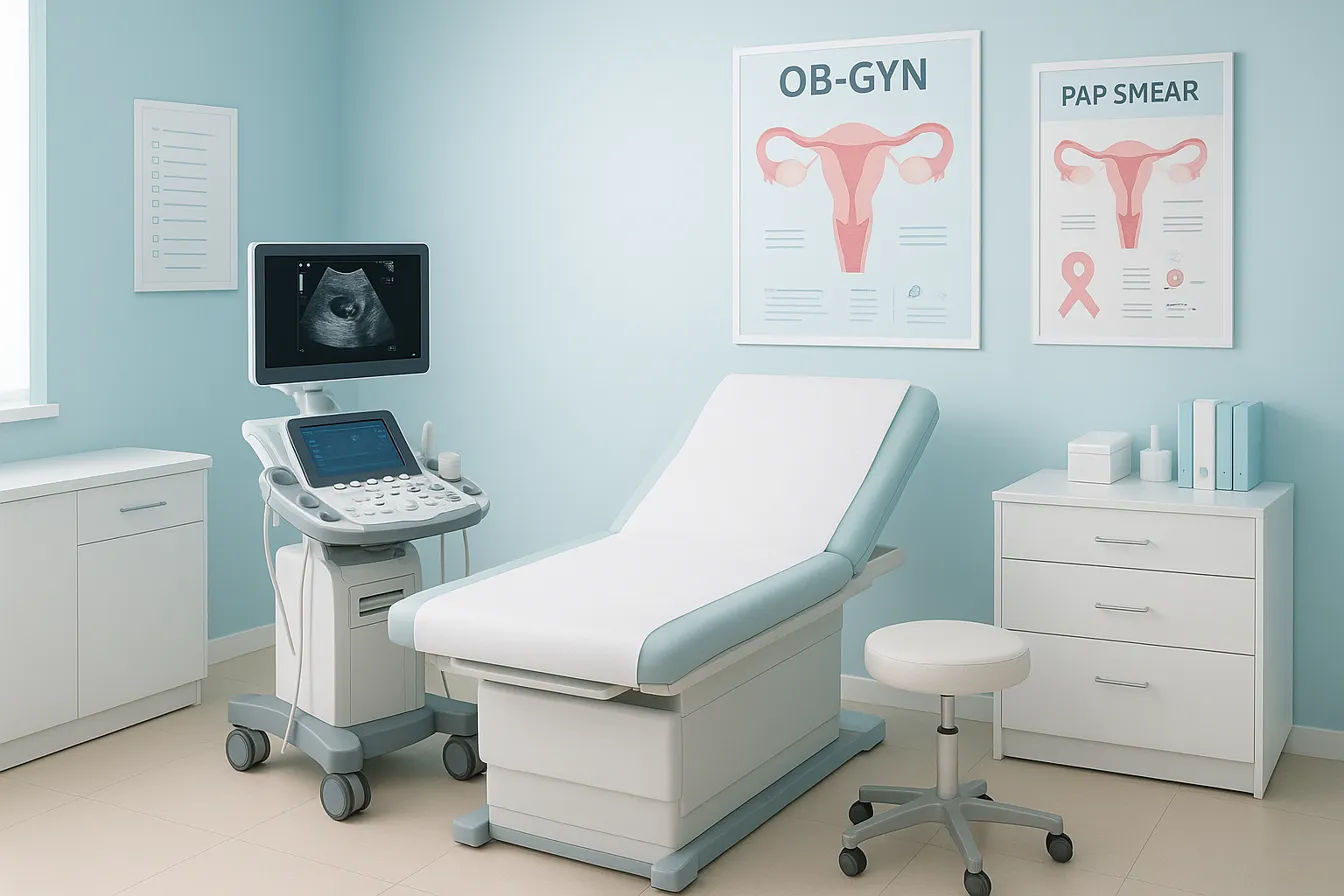


.png)